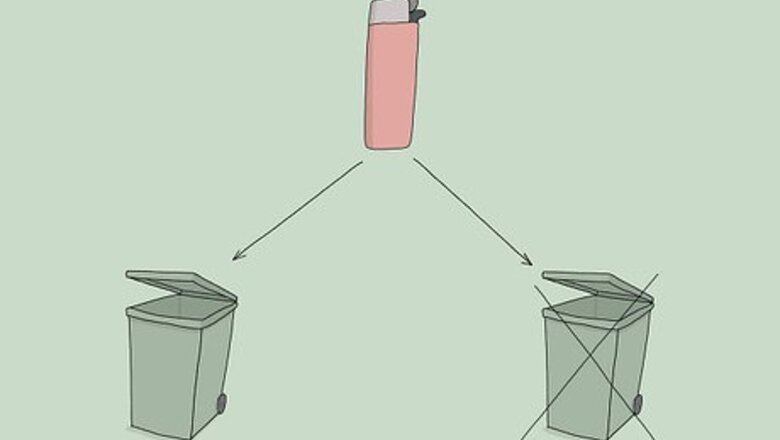
views
Throwing Your Lighter Out
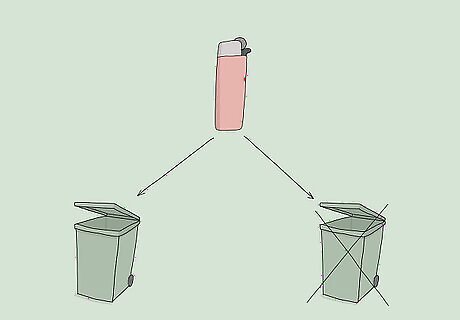
Toss your lighter in the garbage if it’s required by law where you live. Look up the phone number for your local sanitation or waste management department. Call them and ask about the regulations surrounding lighter disposal in your area. In many cities and states, you are required by law to throw lighters out since it’s impossible to recycle them. If this is the case where you live, you have no choice but to throw the lighter out. Even when they’ve been emptied out, lighters will ruin recyclable materials. The gas residue will make it impossible for a recycling plant to safely process the metal or plastic. Additionally, if the gas gets on other items, they won’t be recycled. You may be able to find this information on your local government’s website, but many states don’t list information about lighter disposal online. This process applies to disposable and refillable lighters alike. It doesn’t matter if your lighter uses butane or lighter fluid.
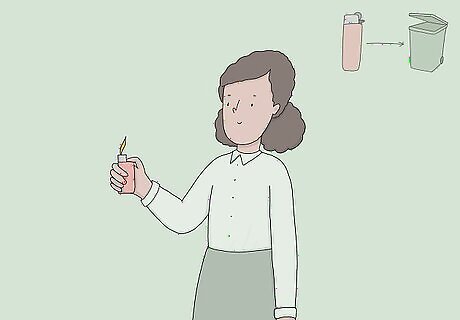
Empty your lighter by burning off the excess fuel. Do this outdoors in a safe area, at least 4 feet (1.2 m) away from any flammable materials. Turn your lighter on and let it burn until the flame goes out. Depending on how much fuel you have left in the lighter, this may take anywhere from 2 seconds to 10 minutes. However, if you’re throwing your lighter out because it is empty, this shouldn’t take long.Warning: Handle the lighter carefully after you finish burning the fuel off. If your lighter was running for more than 5 seconds, it will be hot to the touch after the flame goes out. Wait 2-3 minutes before handling the lighter after it burns out. Do not pour lighter fluid or butane down the drain. Even if you can physically access the fuel or butane, the gas will erode septic tanks and sewer lines. It may also damage the environment, even after the gas is filtered at a water treatment facility.
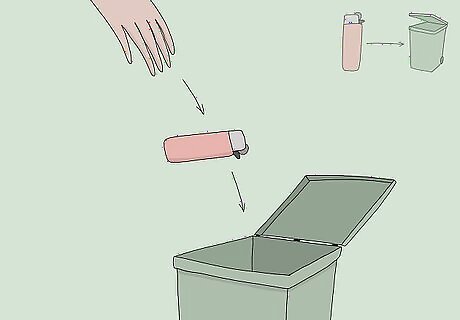
Put your lighter in your garbage can and wait for it to be collected. Once your lighter is empty, simply toss it in the trash. Wait for your trash to be collected by your local waste management service to dispose of your lighter.
Taking Your Lighter to a Waste Facility
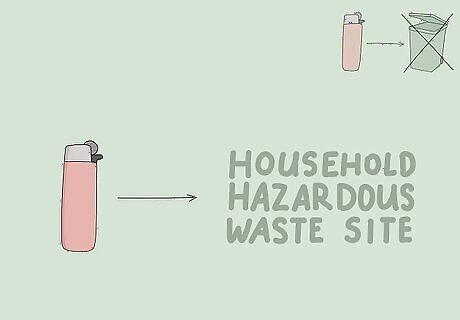
Bring your lighter to a household hazardous waste site if required. In many cities and states, it is illegal to throw a lighter out in the trash. Contact your local sanitation or waste management department to find out if you can take your lighter to a household hazardous waste site. If you can, this is the ideal way to dispose of a lighter since the gas won’t interfere with other items at the landfill as they’re processed. A household hazardous waste site, often abbreviated HHW, is a dedicated waste facility that disposes of items one at a time to ensure that local laws are followed and safety standards are upheld. Items at these sites are typically incinerated or destroyed, but it’s still safer than throwing your lighter in the trash.
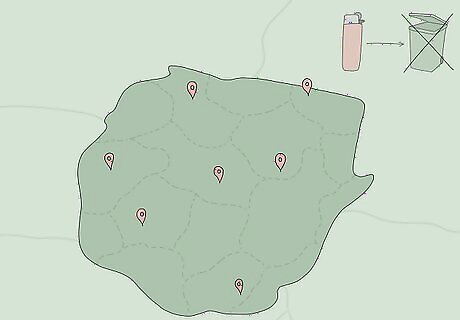
Look online to find the location of a hazardous waste site in your area. Either visit your local government’s website to pull up the address for the hazardous waste site, or look online to find the waste site closest to you. Some cities and states have a search engine on their website to make it easier to find an appropriate disposal site. George Tchobanoglous George Tchobanoglous, Environmental Engineering Expert Getting rid of lighters, especially the non-refillable kind, takes some real thought because of the leftover gas and plastic parts. To safely toss out used lighters, make sure they're totally empty by pushing out any gas still in there. For the environment's sake, take out the metal pieces from the plastic. Then check with your local waste department about how to correctly dump the hazardous stuff. Properly throwing lighters away keeps them from polluting and wasting resources.
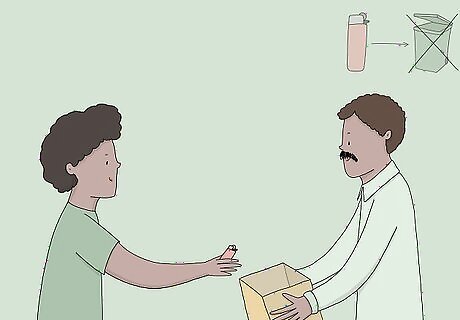
Take your lighter to the disposal site and drop it off. Walk into the household hazardous waste site and hand your lighter over to the clerk behind the desk. They will pass the lighter off to the proper department to have the lighter responsibly destroyed.Tip: If possible, wait until you’ve accumulated multiple dead lighters to avoid the need for more than one trip to the waste site over the course of the next couple of years. This service is always free.




















Comments
0 comment